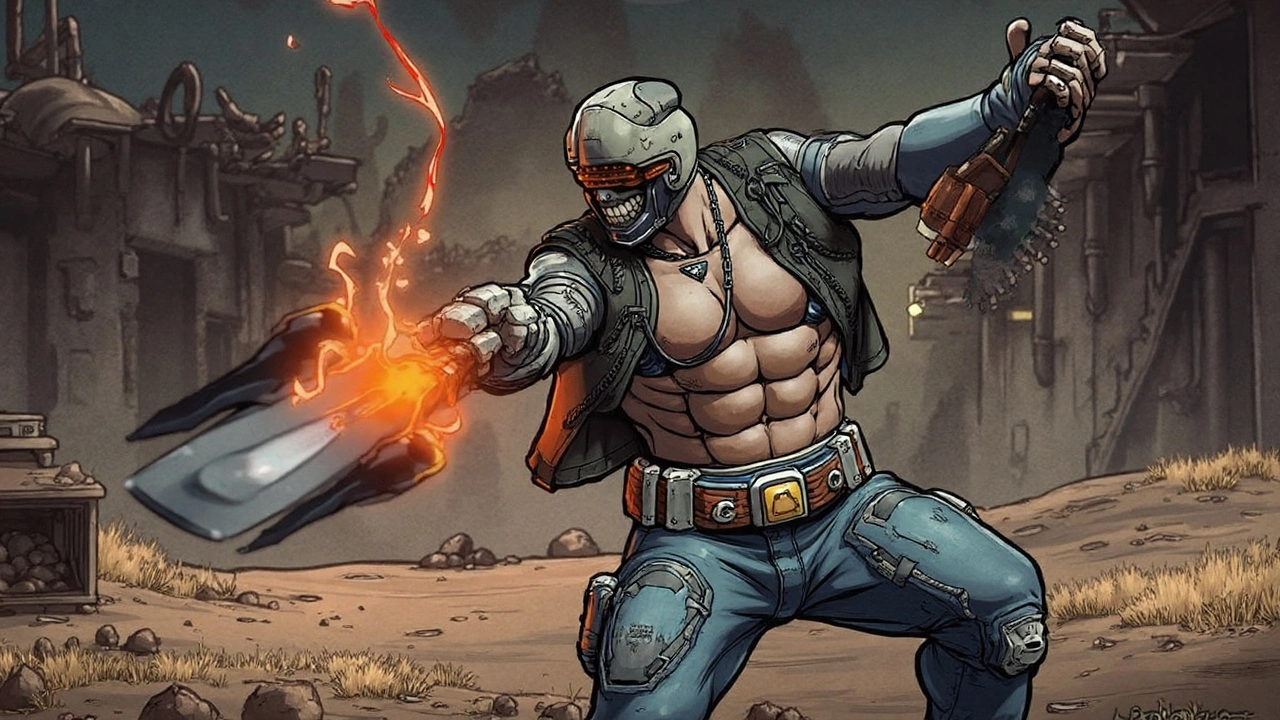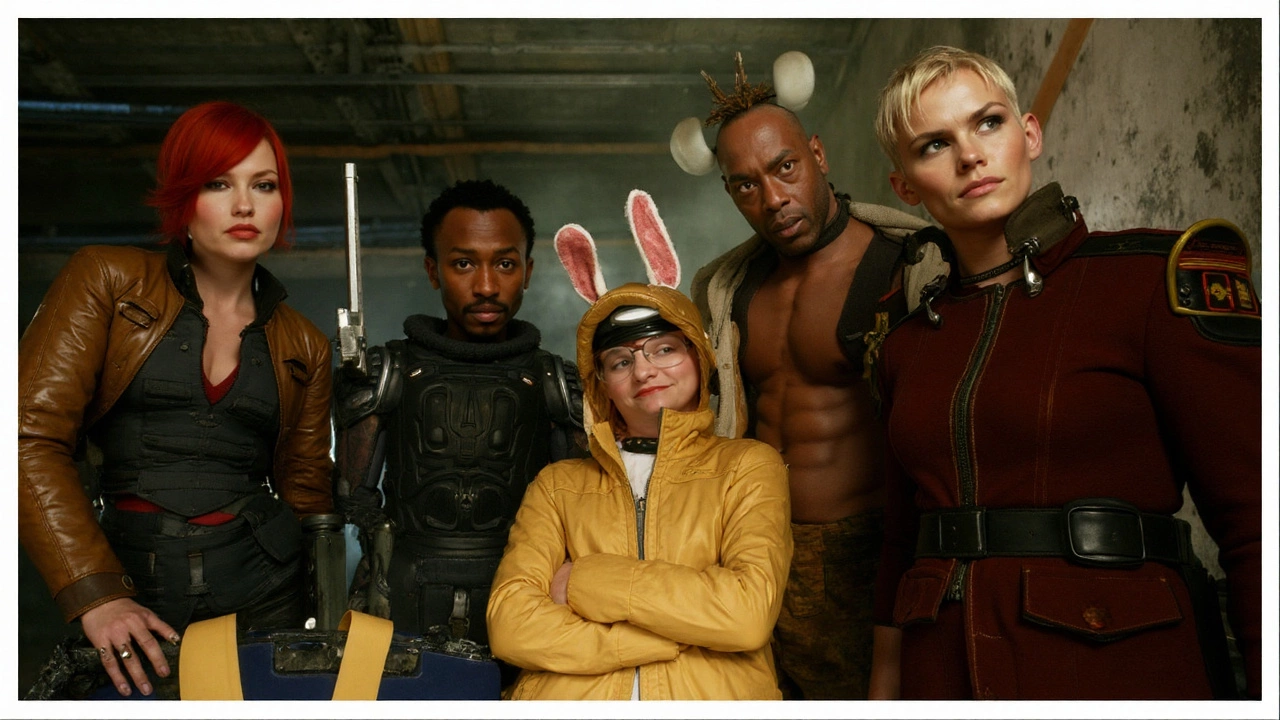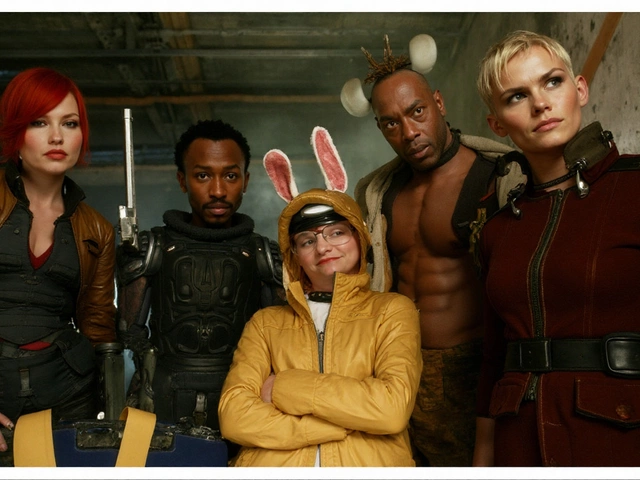A voice that helped define Tiny Tina watches someone else play her
Most actors never have to watch someone else play a character they helped define. Ashly Burch just did — and it rattled her. The Borderlands movie left the original voice of Tiny Tina feeling like she’d slipped into a fever dream, she said in a new interview.
Speaking to Ginx TV, Burch described the screening as disorienting from the opening minutes. She said it took a good 20 to 30 minutes to convince herself she was actually watching a movie and not some odd mashup of memory and make-believe. For someone who spent years shaping Tina’s cadence, attitude, and punchlines, seeing a live-action version was less like spotting a cameo and more like stepping into a funhouse mirror.
That mirror belonged to Ariana Greenblatt, who plays Tiny Tina on screen. Burch hadn’t really pictured a future where her most chaotic Borderlands creation would be standing under studio lights with a stunt team and a camera crew. The shock wasn’t about ownership or credit — it was about recognition. Imagine hearing your own rhythms and emotional beats land, but through another performer’s face and body. That’s the uncanny feeling she kept circling back to.
Tiny Tina wasn’t in the first Borderlands. She blew the doors open in Borderlands 2, quickly becoming the loudest, strangest, most quotable wildcard in the room. That momentum turned into one of the series’ standout DLCs, Tiny Tina’s Assault on Dragon Keep, and later a full spinoff with 2022’s Tiny Tina’s Wonderlands. By the time Hollywood rolled cameras, Tina wasn’t just comic relief — she was franchise DNA. That made her a lock for the film’s core crew.
There’s also a family thread running through this. Burch’s brother, Anthony Burch, was the lead writer on Borderlands 2 and The Pre-Sequel. While watching the movie, she kept clocking characters and bits of voice that trace straight back to her brother’s scripts. That layered the weirdness: not just “that’s my character,” but “that’s our family’s fingerprints.” When someone close to you helped build the world, every familiar face on screen lands with extra weight.
The adaptation itself comes with big names and bigger expectations. Director Eli Roth took on the job of bottling the series’ neon anarchy and pitch-black humor for a crowd that might never have set foot on Pandora. The cast hints at how serious the studio is about crossing over to mainstream audiences:
- Cate Blanchett as Lilith
- Kevin Hart as Roland
- Jack Black voicing Claptrap
- Jamie Lee Curtis as Tannis
- Ariana Greenblatt as Tiny Tina
- Florian Munteanu as Krieg
That roster creates a new dynamic: game voices fans know by heart now sit beside movie stars with their own followings. For the people who shaped these characters in the booth, it’s a strange handoff. Voice actors aren’t just reading lines; they help carve out rhythm, warmth, menace, and comedy. A pause becomes a personality trait. A laugh becomes a backstory. Watching someone else rewire that in real time is both thrilling and a little eerie.
We’ve seen this before. Ashley Johnson and Troy Baker, who defined Ellie and Joel in The Last of Us, watched new leads take those roles on HBO while they appeared in smaller parts. Charles Martinet, the longtime voice of Mario, made a cameo in the animated film while a different cast anchored the feature. Each time, the original voices talked about the emotional whiplash — pride, curiosity, and the slight vertigo of hearing “their” character sound different.
Burch sits at an interesting crossroads in all this. She’s not just Tiny Tina; she’s also the voice of Aloy in Horizon and Chloe Price in Life Is Strange. She knows how a voice can carry a character’s heart. That’s probably why the movie hit her so hard. She wasn’t judging; she was recalibrating. She needed time to line up the character in her head with the one bouncing across the screen.
It also speaks to how games and movies handle identity. In games, players spend dozens of hours with a character, sometimes hundreds. That intimacy turns small quirks into anchors. When you move to film, two hours forces bolder, simpler choices. Tone has to scan in seconds. Borderlands, with its mash of slapstick, splatter, and sentiment, is a tightrope even before you add real actors and real locations to the mix.
Greenblatt’s casting puts Tiny Tina in a sweet spot: young enough to sell the wild-child energy, seasoned enough to land jokes without sandblasting the heart out of them. For fans, that’s the litmus test. Tina can be abrasive and tender in the same breath; she’ll rig explosives while planning a tea party. If the movie preserves that contradiction, it preserves the character. That’s the needle Burch was watching the film try to thread.
There’s a bigger industry story here too. Studios keep chasing game worlds because they come with built-in communities and clear aesthetics — and because the technology and budgets finally let filmmakers swing big without sanding off what made the games special. But that comes with hard questions: Which voices carry over? Which faces change? How do you keep the pulse of a character when you swap medium, tone, and star wattage?
For Burch, the answer — at least on first watch — was to sit in the weirdness and let it wash over her. She recognized the bones of the world, the cadence of the jokes, the echo of her brother’s ideas. And she watched someone else run with the version of Tiny Tina fans first met in a booth, not a soundstage. It’s jarring. It’s also the strange cost of seeing a game you love take on a new life.

What the moment means for fans and the franchise
For longtime players, Burch’s reaction is a reminder of why this stuff matters. Characters like Tina don’t live only in scripts or in renders. They live in timing, in ad-libs that stick, in the way a catchphrase drops after a beat. When a film gets those rhythms right, it feels like coming home. When it shifts them, even slightly, it can feel like meeting an old friend with a new accent.
Borderlands sits at a critical point for cross-medium storytelling. The games remain loud, colorful, and unruly — a looter-shooter with a beating, deeply weird heart. The movie tries to capture that in a space with different rules. Ashly Burch’s “fever dream” isn’t a pan; it’s a candid snapshot of what it’s like when a character you helped build walks into a new room and starts talking back. It’s disorienting. And for fans who’ve been quoting Tina for a decade, it’s oddly comforting to hear that even the person behind the voice needed a minute to adjust.

